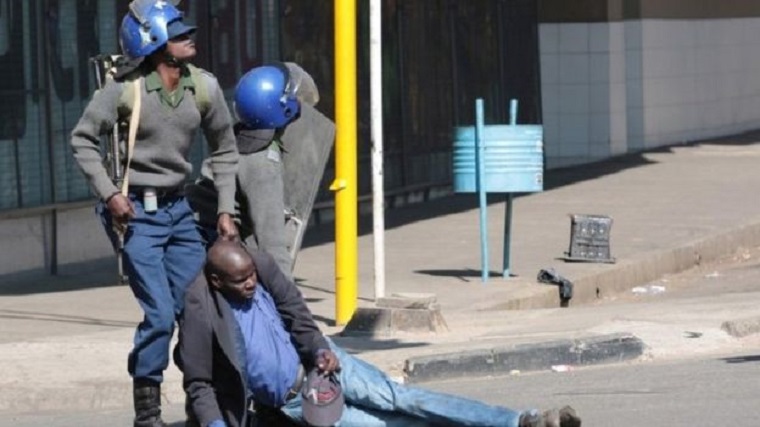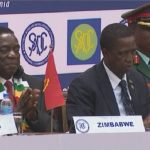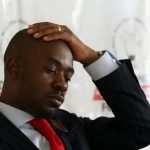 Zimbabwe police today blocked a street protest for the third time in five days, as the main opposition party said hopes were vanishing that the government might become more tolerant of dissent than the one it replaced.
Zimbabwe police today blocked a street protest for the third time in five days, as the main opposition party said hopes were vanishing that the government might become more tolerant of dissent than the one it replaced.
President Emmerson Mnangagwa was elected a year ago, promising a break with the repression that characterised Robert Mugabe’s 37-year rule, and an economic upturn.
But the economy is mired in its worst crisis in a decade, and security forces have snuffed out three attempts by the main opposition Movement for Democratic Change (MDC) since Friday to hold street demonstrations against shortages of fuel, power, bread and what they say is increasing repression.
Today’s heavy security deployment was in the central city of Gweru, where police – who had banned the march on Monday night – patrolled on foot and in lorries and cordoned off a university.
The MDC said it had decided not to challenge the ban in court even though it had indicated earlier today that it would.
An MDC source said party leaders would meet in Harare tomorrow to review strategy and expected the police to also ban two more marches planned this week.
“In the past few days, there has not just been a ban on civilian politics, but a de facto state of emergency,” the MDC statement said. “The proscription of the people’s fundamental rights is therefore a crude form of political asphyxiation.”
It echoed comments from MDC spokesman Daniel Molokele, who said: “There is a determined effort by the regime to ensure that there is no more democratic space … It clearly shows that the new government is even worse than that of Robert Mugabe.”
The party failed to overturn two previous bans on marches in the capital Harare on Friday – where police rounded up MDC followers and dispersed them with batons and water cannon and tear gas – and in the second city Bulawayo yesterday.
In the days before the planned Harare demonstration, six political activists were abducted from their homes at night and beaten by armed men, rights groups say.
They also say the government has this year levelled subversion charges against at least 24 activists and opposition leaders, the highest number in a single year.
In a joint statement, Western embassies in Harare said they were concerned about human rights violations by the government and called for economic and political reforms and national dialogue to end Zimbabwe’s problems.
The police said they had evidence the protests would turn violent and did not have enough manpower to monitor them.
Bulawayo saw massive looting and destruction of property in January when protests against a steep rise in the price of fuel turned violent, triggering an army crackdown that killed more than a dozen people.- TR
(94 VIEWS)


